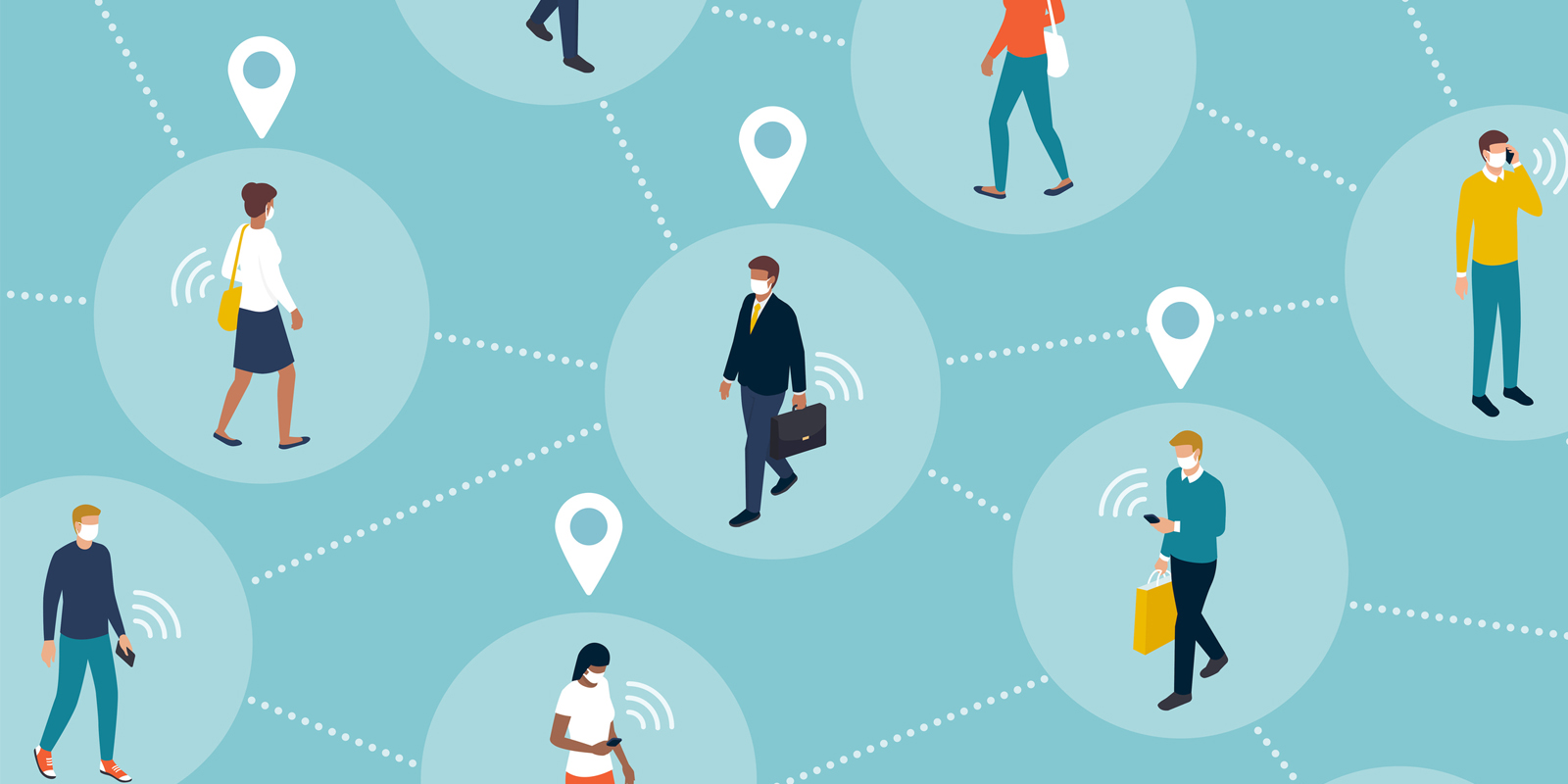Helping Healthcare Return to Work with Contact Tracing

Employee safety, always a top priority for healthcare organizations, has become even more important as workplaces around the country have begun to reopen and shift from COVID-19 response to recovery.
According to an April survey of 305 U.S.-based CFOs by PwC, 22 percent of businesses plan to incorporate contact tracing into their Return to Work plans. This is not a simple process; the CDC describes contact tracing as a “specialized skill” that requires an understanding of patient confidentiality laws, basic crisis counseling, interpersonal interviewing skills, cultural sensitivity, and COVID-19 medical terminology.
Enterprise software vendors and tech companies have recognized the challenges that contact tracing can pose and have unveiled several Return to Work initiatives for their customers in recent weeks:
- Kronos has introduced an employee contact tracing report that analyzes time and attendance data to determine which employees may have come in contact with a co-worker who is presumed positive for COVID-19.
- Salesforce has rolled out Work.com a site dedicated to the company’s Return to Work products. The Workplace Command Center for employee wellness assessment is currently live, while the Contact Tracing product is coming soon.
- ServiceNow has released four emergency response management apps for symptom self-reporting, exposure risk management, emergency response operations, and emergency outreach.
- Apple and Google are working together to develop a Bluetooth-based contact tracing platform that will be built into the iOS an Android operating systems. The two companies have already released APIs that enable interoperability between iOS and Android.
Global consultancies are also providing Return to Work solutions.
- Deloitte has introduced the Reboot model for preparing organizations to return to work in both physical and virtual workplaces, with technology products for health risk management and infection risk prediction.
- PwC has developed a mobile app for contact tracing that runs in the background on an employee’s phone while they are in the workplace and analyzes information such as the strength of the Bluetooth signal from a nearby phone. This allows executives to better identify who may have been exposed to a co-worker with COVID-19 and to develop response plans accordingly.
Keeping Healthcare Workers Safe
Large employers are most likely to implement a contact tracing strategy, and that includes many healthcare employers, according to John McDaniel, Managing Director of Digital Health Innovation for Healthcare IT Leaders
“Health systems are some of the largest businesses in their communities, and they have a vested interest in keeping their employees and their patients safe. It makes sense to do that by proactively monitoring, in a HIPAA-compliant manner, staff who test positive or show symptoms of COVID-19,” said McDaniel.
The follow-up for exposed employees requires specialized training and sensitivity, adds McDaniel, requiring thoughtful planning and policies.
Healthcare IT Leaders is offering clients COVID-19 Contact Tracing and Return to Work solutions to meet a variety of technology, consulting and staffing needs:
- Implementation and integration of enterprise Contact Tracing solutions from vendors such as Kronos, Salesforce, and ServiceNow
- Deployment and integration of third-party contact tracing apps and other tools that support Return to Work plans
- Installation and support of cloud infrastructure to maintain and manage a remote workforce
- Specialized recruitment of Contact Tracing Command Center staff
Reach out to Healthcare IT Leaders today if Contact Tracing is a core component of your Return to Work strategy. Our experience in public health, workforce management, and enterprise IT uniquely positions us to guide healthcare organizations through the Return to Work planning and decision-making process.
